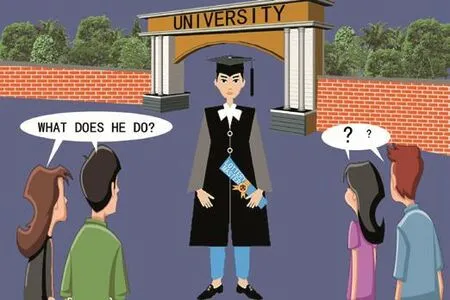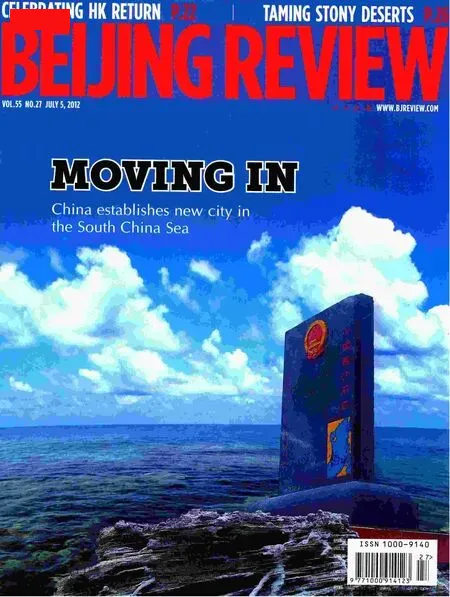Is It Necessary to Cultivate Lottery Masters?
Is It Necessary to Cultivate Lottery Masters?

Li SHigOng
On June 2, Beijing Normal University announced the founding of the National Lottery Development Institute (NLDI), a scientific research institution on lottery studies, which offers master’s degrees in the subject.
Xu Ruixin, Director of the NLDI, said the institute will mobilize the teaching resources of the School of Social Development and Public Policy and other departments to develop an international degree program in collaboration with American universities. Xu noted the institute aims at nurturing senior public management personnel suitable for all kinds of lottery organizations and providing an array of training courses on lotteries.
China’s lottery industry witnessed a growth rate of 25 percent. The welfare lottery hit 600 billion yuan ($95.2 billion), generating 200 billion yuan ($31.7 billion) in public welfare funds, which has subsidized more than 240,000 social welfare and charity programs, benefting more than 200 million people.
Some people doubt the necessity of the subject, while others argue that the lottery industry currently faces a severe talent shortage, hindering its long-term development. The NLDI needs to concentrate its efforts on the cultivation of lottery research and management professionals. The following are excerpts of some opinions.
Supporters
Shang Lifu (The Beijing News): The institute hopes to enroll students who want to gain a degree in operating or managing the national welfare lottery. The degree in lottery studies is listed as a regular academic major under public administration. The institute wants toimprove the management abilities of future lottery operators.
The institute could also invite people engaged in different lotteries — those for sports and welfare programs — to communicate with each other and work out ways to improve the industry’s development.
Wang Chuantao (Legal Daily): The NLDI is just an independent academic institution. Before its social functions are fully displayed, we should see it objectively.
Personal feelings aside, we should support the academic development of the lottery sector, which contributes to China’s social progress. In recent years, some people have shown doubts about the lottery system because of the low winning threshold. Even so, we should not criticize the lottery as a root of evil. On the contrary, more academic resources should be allocated to the sector to address these problems.
Deng Wei (Xinhua Daily Telegraph): Currently, the research, teaching and services of lotteries in China have not matured. So, setting up a lottery institute will fll a blank.
In fact, besides Beijing Normal University, as early as 2006, Peking University launched a lottery master’s program. The lottery studies focus on how to break the regularity of the lottery, how to conduct risk control and how to avoid the excessive buying of lottery tickets. To put it in a more explicit way, the major in lottery studies aims to advance lottery research and cultivate personnel for lottery operation and management.
Some people doubt the necessity of setting up the subject because they lack knowledge of the industry. They may be also unsatisfed with how the lottery is operated and managed. Some problems in the current lottery system, in terms of the use of welfare lottery funds, the fairness of lotteries and the income of the lottery personnel add to misunderstanding and criticism of the lottery master’s program. If these problems cannot be properly solved, the public will continue to feel repulsive about this term.
With millions of people and hundreds of billion yuan involved, it is necessary to improve the professional ability of research and management staff in the lottery sector.
Dear Readers,
“Forum” is a column that provides a space for varying perspectives on contemporary Chinese society. We invite you to submit personal viewpoints on past and current topics (in either English or Chinese).
zanjifang@bjreview.com
Please provide your name and address along with your comments.
Opponents
Xie Yong (Guangzhou Daily): The fundraising and the flow of capital in the lottery system are not transparent. This is one of the major causes of public concern. Beijing Normal University, no matter its educational idea or academic specialties, has nothing to do with lottery studies.
China’s lottery industry started only 20 years ago and it needs to be standardized. If the lottery system is not reformed, the future lottery masters will fnd it diffcult to bring their talent into full play. If teachers only repeat what the textbooks say, students may feel confused and frustrated when entering into practical work.
Zhi Feng (www.voc.com.cn): The nature of the lottery is gambling. Some time ago, public doubts were greatly aroused by the negative social effects of lottery ticket buying. We have enough reasons to believe it is the original desire for gambling that stimulates people to buy lottery tickets. In the gambling world, there is a possibility for people to make a fortune by investing a little but gaining a lot. Such speculative mentality would not change in buying lottery tickets despite its public welfare character.
Wang Yijun (China Youth Daily): What matters in cultivating lottery masters is who takes the role of educator? Generally, universities should stick to their respective characteristics in cultivating talents, rather than adjusting majors and educational objectives according to social demands. Otherwise, universities will evolve into social service stations or career training centers. It is the duty for vocational schools to provide employment-oriented education. That explains why vocational schools didn’t stir up public opinion by introducing a lottery major a few years ago.
Therefore, universities should answer the following questions before providing courses for lottery masters: First, is the lottery master’s program in line with its educational orientation? What kind of degrees will be conferred to the future masters—a professional degree or an academic degree? Universities should provide enough evidence to prove that the program and related curriculum will be given enough educational resources.
Second, what is the research direction of lottery masters? The director of the NLDI emphasized the institute’s goal was to improve management abilities of future lottery operators and offer a set of training courses for executive staff in the lottery sector. Besides all of this, will the program focus more on how to ensure the fairness of lotteries and how to secure good use of public welfare funds?

